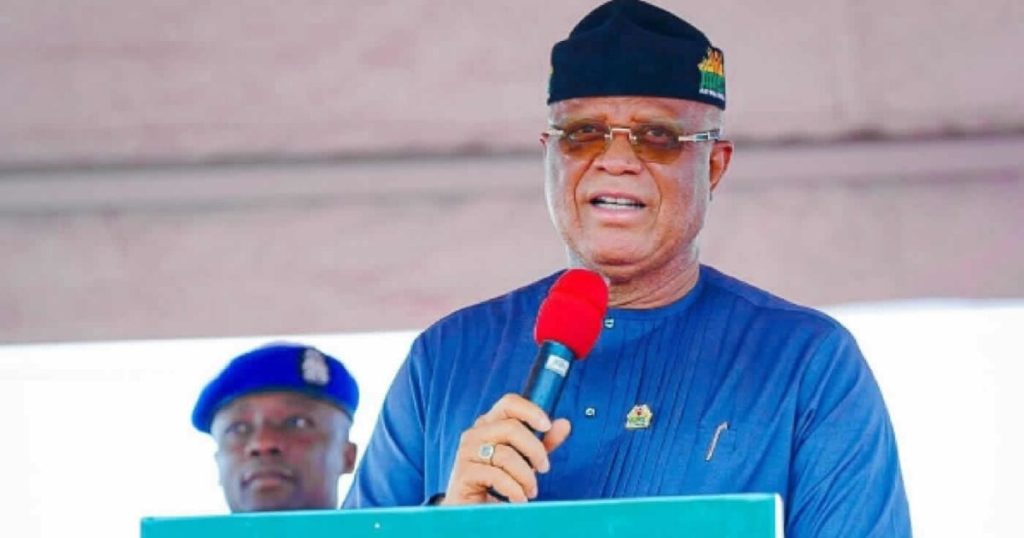Akwa Ibom State, under the leadership of Governor Umo Eno, has embarked on an ambitious journey to revolutionize its electricity sector and establish itself as a model for power reforms in Nigeria. The governor unveiled a comprehensive roadmap during a two-day Electricity Summit, outlining a phased approach to achieve universal access to quality electricity by 2034. This initiative is driven by a vision to unlock the state’s economic potential, foster industrial growth, empower businesses, and enhance the quality of life for all residents. The governor emphasized the vital role of collaboration with private sector players, federal agencies, development finance institutions, investors, and the Akwa Ibom populace in realizing this transformative objective.
The cornerstone of this initiative is the establishment of two key agencies: the Akwa Ibom State Electricity Regulation Commission (AKSERC) and the Akwa Ibom State Electrification Agency (AISEA). AKSERC will be responsible for ensuring fair tariffs, transparent licensing procedures, and independent oversight of the electricity market, fostering a competitive and investor-friendly environment. AISEA, on the other hand, will focus on extending electricity access to underserved communities, towns, and villages, bridging the energy gap and promoting equitable development across the state. The governor stressed the immediate nature of this undertaking, promising the constitution of the boards of both agencies within a month, signaling a strong commitment to swift action and efficient implementation.
Recognizing the importance of skilled manpower in driving this transformation, Governor Eno emphasized the need for qualified professionals to join the ranks of these agencies. He encouraged Akwa Ibomites with relevant technical expertise to apply through the state’s ARISE Employment Portal. He underscored the purely professional nature of these appointments, assuring a transparent recruitment process based solely on merit and technical competence. This commitment to professionalism aims to depoliticize the electricity sector and ensure the appointment of individuals capable of effectively managing the complex challenges and opportunities within the industry.
The revitalization of the Ibom Power Company is central to the state’s electricity reform agenda. The governor outlined plans to rehabilitate and commercialize the company, attract capital investment, and commence urgent rehabilitation efforts. This revitalization strategy also includes the establishment of the Akwa Ibom Electricity Distribution Company and an upgrade of the state’s distribution network. These measures aim to enhance the efficiency and reliability of power supply, addressing the persistent challenges of inadequate generation and distribution that have hampered the state’s economic progress. The establishment of an Akwa Ibom Electricity Market, with Ibom Power Company and the new distribution company as licensed players, further strengthens the state’s control over its electricity infrastructure.
Governor Eno also highlighted the importance of sustainable energy solutions, committing to pilot renewable energy projects. The goal is to ensure that at least 20% of the state’s future power generation comes from clean sources, contributing to a greener and more environmentally responsible energy mix. This focus on renewable energy aligns with global trends towards sustainable development and underscores the state’s commitment to mitigating the impacts of climate change. The governor emphasized the tangible and achievable nature of these plans, stating that these initiatives are not mere distant promises but concrete steps that will be implemented within the next 24 months or even sooner.
This ambitious undertaking by Akwa Ibom State aligns with the broader national vision for electricity sector reform. The recently ratified National Integrated Electricity Policy, endorsed by President Bola Tinubu, aims to attract substantial investments to overhaul Nigeria’s power sector. This national policy emphasizes diversification of energy sources, expansion of transmission capacity, and a comprehensive approach to address critical challenges in power generation, transmission, distribution, and renewable energy integration. The policy also emphasizes the need for improved governance within the sector. Akwa Ibom’s proactive approach and commitment to electricity sector reform position it as a potential leader in driving sustainable and inclusive energy development in Nigeria. By implementing this comprehensive roadmap, the state aims to not only achieve its ambitious electrification goals but also serve as a model for other states to emulate in their pursuit of a more robust and reliable power sector.


